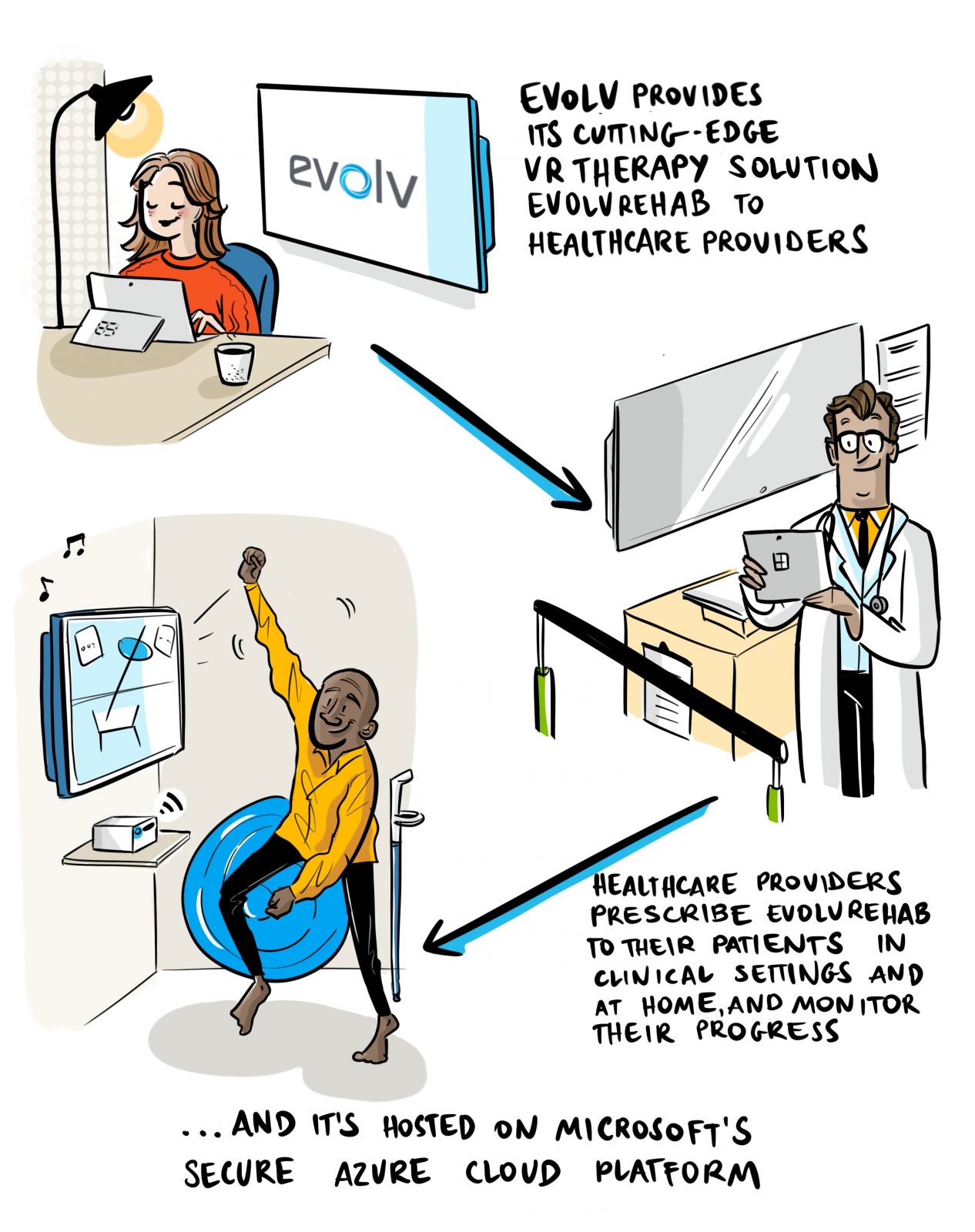But you're not delivering 100% recovery! WHY NOT? Survivors want 100% recovery, nothing less!
Evolv is empowering a revolution in stroke rehabilitation
Recovering from a stroke can be exhausting, presenting survivors with a punishing physical and mental battle as they relearn how to move and speak once again.
For many, it will become a long-term fight, needing a huge level of personal determination, plus the support of rehabilitation professionals, alongside family and friends, to help them retrain body functions affected by the stroke, such as their coordination, balance and speech.
But thanks to a technological revolution in stroke rehabilitation, those recoveries could now take a smoother path, with a new interactive health system offering telemonitored rehab sessions in stroke survivors’ homes.
Designed with the Azure Kinect camera at its centre, the compact Evolv RehabKit can monitor a user’s precise movements, keeping a close eye on them as they take part in a series of task-based games and exercises. These form part of EvolvRehab, the pioneering virtual rehabilitation platform that runs on the RehabKit.
The therapeutic game-like activities in EvolvRehab have been designed by professional therapists to bolster stroke and brain injury survivors’ self-confidence while increasing their mobility, assisting in their on-going progression to stand, reach, grasp, walk and speak.
Around 100,000 people suffer from a stroke each year in the UK. It is a life-threatening medical condition that causes the blood supply to part of the brain to be cut off, requiring treatment in hospital as soon as possible.
Having already seen life-changing results in its initial phases, Evolv RehabKit could become even more transformational. There are more than 1.2 million stroke survivors in the UK, with two-thirds of survivors leaving hospital with a disability. This leads to an estimated cost of £26 billion a year.
Rehabilitation can last for months, or even years, and has previously focused primarily on face-to-face sessions in hospitals and specialist centres.
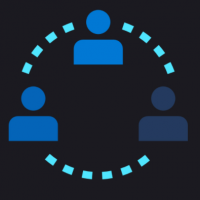
But where the Evolv RehabKit differs is it can be used independently at home, with sessions replicating approved exercises, personalised by professional therapists for each survivor.
David Fried, CEO of Evolv, says: “Our goal was to help deliver rehabilitation out of the clinical setting, providing the repetitive therapeutic activity that’s required to improve outcomes for stroke survivors directly into their homes ideally, or it could be in a day centre, community centre, or residential care home. It can help take the burden off the NHS sites.”
“Microsoft is a really big part of that,” he adds.
Real world results that are truly life-changing
The Evolv RehabKit has also been used to benefit others needing physical rehabilitation, such as those with Parkinson’s, Multiple Sclerosis, spine and brain injuries or those who are at risk of falls.
Running from a mini-PC, EvolvRehab is powered by a suite of Microsoft technology, chiefly Azure Kinect, which captures the movement of the user. It also comes with Microsoft Teams, meaning survivors and their therapists can communicate via video calls to set goals, share progress and provide feedback.
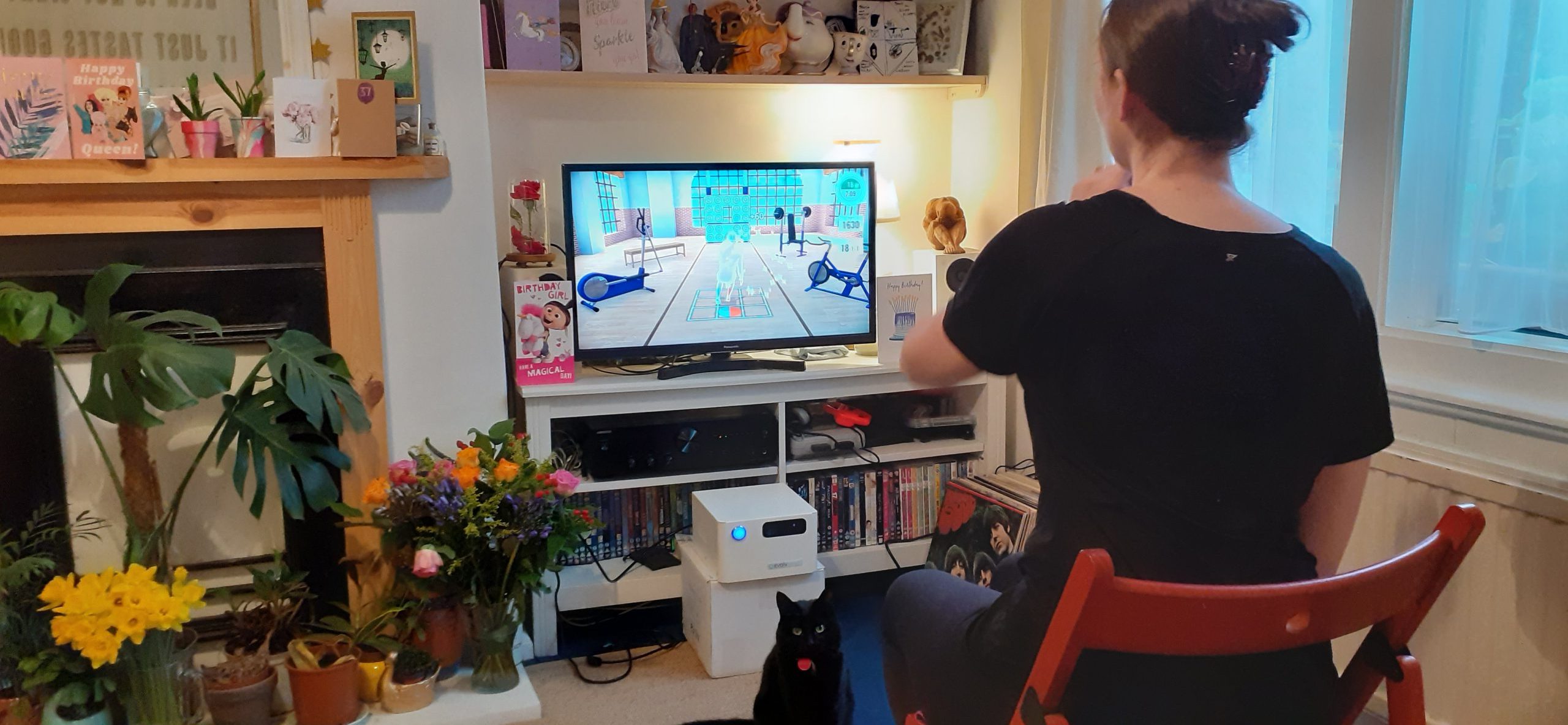
All the data gathered is stored in the Microsoft Azure cloud, which contains high-grade security and privacy measures. Information and performance results can only be accessed by the user’s authorised physiotherapist. Healthcare professionals can also use Power BI to visualise patient performance and create user reports.
Jacob West, Director of Healthcare and Life Sciences at Microsoft UK, says: “Microsoft’s technology empowers people to achieve more, and this is vitally important in healthcare. The Azure cloud is being used by healthcare teams across the world to help them use data to benefit their patients, while the cutting-edge security and privacy built-in to Azure means customers are always in control of who can access and view information.
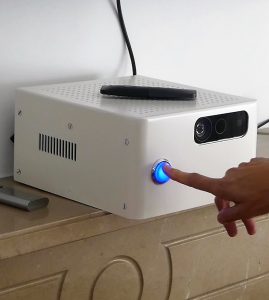 “This level of control creates incredible tools and services that transform lives. The Evolv Rehabkit (right) is one of those products. I’m delighted to see the positive impact it’s having on stroke patients.”
“This level of control creates incredible tools and services that transform lives. The Evolv Rehabkit (right) is one of those products. I’m delighted to see the positive impact it’s having on stroke patients.”
David points out how the Evolv RehabKit offers a service that can’t be replicated elsewhere. He says: “You need to treat stroke survivors like elite athletes, the same concept, training every day, a healthy lifestyle, positivity and repetition over and over again to improve performance. But you can’t have hundreds of them showing up to an NHS Trust and doing 1000s of repetitions of exercises in a rehabilitation ward.”
EvolvRehab started life as a concept project in 2011, originally to help treat those with MS, but when the COVID-19 pandemic began, the need for at-home rehab became critical.
As lockdown restrictions made it impossible for many therapists and stroke patients to meet in person, and with the UK braced for tougher measures, in September 2020 Microsoft helped Evolv as it made more RehabKits available to healthcare teams. These were given to stroke survivors, allowing their progress to continue at home.
“What we try to do in our platform is offer different types of activities that touch upon different types of therapy. The important thing is the activities can be personalised to each individual at home,” David adds.
“For example, you’d be playing a game where barriers come out towards you, and you have to lift your leg to get over them, which helps balance and coordination. They are games, you are doing repetition, you are doing therapeutic activity that’s prescribed and personalised to you, but you have no idea you are doing exercise – you are simply playing a game.”
Encouragement through gamification
The latest version of the Evolv RehabKit was completed in January 2021 and many stroke survivors and professionals who have used it put its success down to how simple it is to use. This hardware runs the EvolvRehab software platform. By pressing a large blue button on the front of the RehabKit, it starts up immediately, with the camera recognising the user and displaying an avatar of them on-screen.
As a company, Evolv works closely with the specialist National Hospital for Neurology and Neurosurgery in Queen Square, London, which is part of University College London Hospitals NHS Foundation Trust. It has also partnered with academic institutions such as the universities of Reading, East Anglia and Cambridge, as well as collaborating with private physiotherapy providers.
And while its physical challenges offer upper and lower extremity training, and fine motor skills for the hand, EvolvRehab also contains dual-tasking “exergames” (exercise while playing gaming). These combine language and motor training to encourage thinking and moving simultaneously. For example, a word is displayed on-screen along with several pictures of different items and the “player” must reach out and touch the correct picture of the item based on the given word. At other times, they will touch the item that rhymes with a given word or starts with a certain sound.
It is through gamifying physiotherapy with points and trophies that the EvolvRehab software ensures survivors want to continue treatment. David suggests it motivates them and also helps reduce their anxiety and depression.
He adds: “It doesn’t matter what your age is. You have people who’ve never played a video game in their life, but they recognise achievement, they recognise prizes, they recognise medals.
“It’s really compelling for them to achieve different types of goals that are set out by the therapist.”
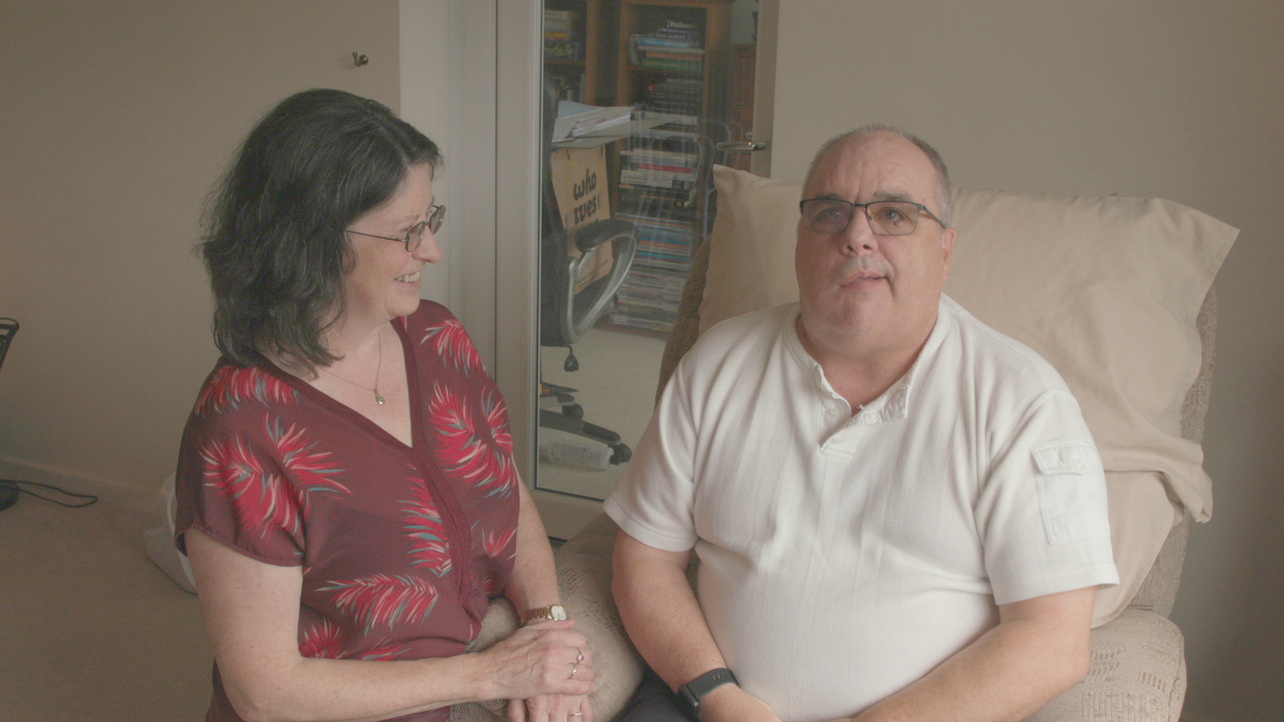
Evolv is part of the Microsoft for Startups and Global Social Entrepreneurship programme, a global programme that offers new companies access to technology, and go-to-market and community benefits to help them grow. EvolvRehab is currently available in 10 different languages, with clinical validation in seven countries, and has been used to provide telerehabilitation in a dozen countries.
A new lease of life for survivors
One person who has benefitted from this advance in treatment is 59-year-old Nigel Skates. He suffered a stroke in February 2020 and now spends between 15 and 25 minutes a day, six days a week, using the Evolv RehabKit. Through Microsoft Teams he is in regular contact with his therapist, Hannah Woods-Hier at Hobbs Rehabilitation.
Nigel, who lives in Basingstoke, Hampshire, explains the avatar on-screen means he sees how he moves, allowing him to correct his posture and balance himself, rather than needing a therapist there to explain what to do. He can also set his own individual goals and shape his rehab around the times when he feels most energetic and prepared for exercise.
He says: “My balance has improved, I can stand on my own. I can walk with a walking stick aided by a carer or my wife, and unaided with a walker. I can also bend down, slowly, admittedly, to pick things up on the floor. I am able to put my own shoes on. But the biggest thing I benefited from is the self-confidence.”
Nigel’s wife Lynda, a former nurse working with people with disabilities, is equally impressed by how the system has transformed her husband for the better. “He’s gone from a feeling of just hanging off the therapist’s arm to always telling me his latest score on the challenges,” she adds, slightly emotionally.
“What I’ve heard from therapists is people are not commonly motivated to do self-exercise, where you just sit or stand there, stretching out an arm or bending a leg.
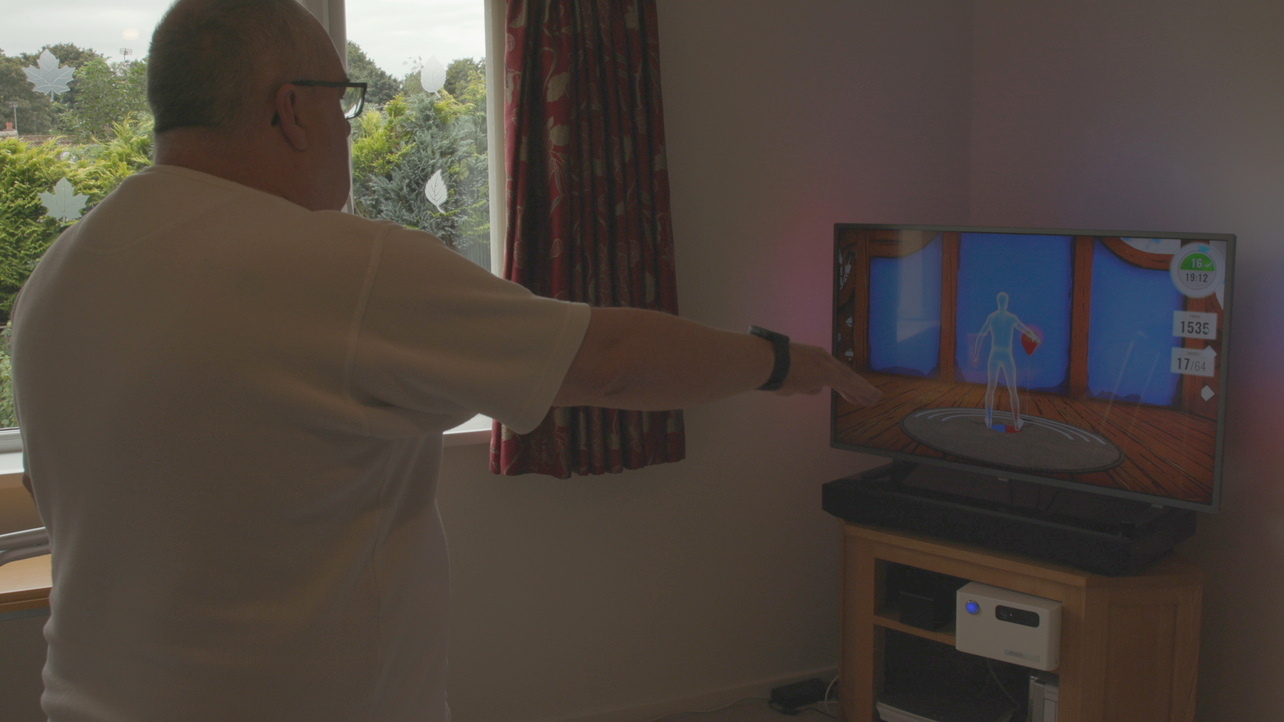
“I can say wholeheartedly, I can’t think of a single exercise Nigel’s continued where it was just on his own. But doing Evolv, he never questions it.”
Therapist Hannah is also quick to praise the system. “I think it’s been exceedingly useful for the stroke survivors that have used it so far, to help get them moving more at home,” she says. “It’s so important in stroke rehab to complete a lot of repetitions of your exercises. The Evolv RehabKit allows us to get those repetitions in a more fun and engaging way.”
But it is the sense of independence offered by the Evolv RehabKit that David believes is key to its successful outcomes for survivors.
“Psychologically, with their rehab and the kit, we tell them we’re giving you the keys to the car, take it for a ride,” he says with a smile. “Pretty much all the survivors take that message to heart, do their 1000s of repetitions, put in hours and hours of rehabilitation, and they see the results.
“Importantly, their loved ones are seeing important results too, not only physically but the sense of autonomy. That’s really important for stroke survivors and their families.”
